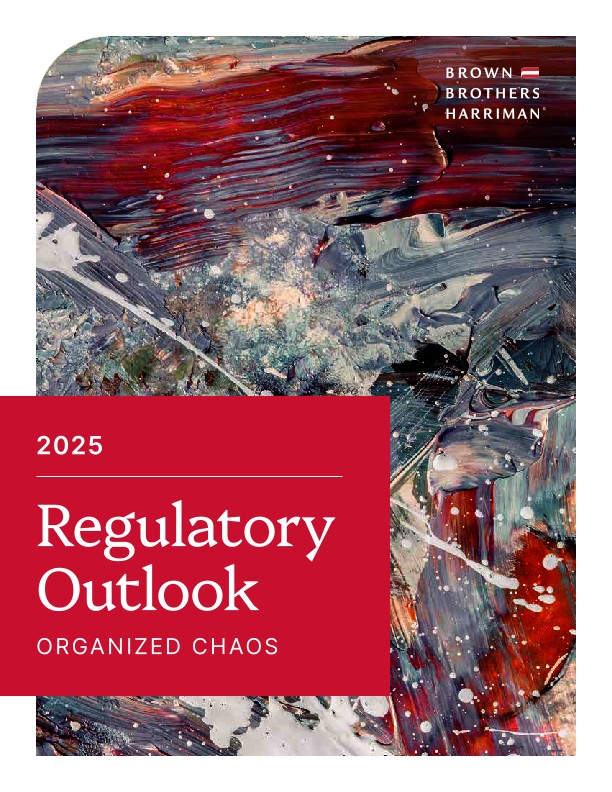Could a new Chair at the SEC mark a shift in priorities? Capital formation, increased competition, and efficiency in the markets, as well as rulemaking and enforcement actions are expected to be top priorities.
With recent geopolitical shifts, increased global competition, and recharged focus on innovation, the global regulatory landscape has a busy 2025 ahead.
Headlines for 2025:
- Ongoing geopolitical shifts are having major impacts on the future of regulation with emerging themes of de-globalization, protectionism, and innovation
- Industry continues to feel bullish about private markets as a virtuous cycle of investor demand and improved regulatory wrappers bolsters growth
- Regulators and asset managers are keen to realize the benefits of artificial intelligence and tokenization but remain cautious against risk
The EU’s Digital Operational Resilience Act (DORA) comes into effect on January 17th, 2025 and sets a far higher bar for compliance than any previous operational resilience regulation. As firms navigate this new regulation, understanding and actively communicating the scope of their operating model and supply chain technology stack will become critical.
A combination of financial education, societal impacts, political will and cooling interest rates are paving the way for future growth in private markets.
The balance of fostering innovation and protecting investors interests is set to continue in the UCITS space with the broadening of investor access via the Savings & Investment Union and a tightening of controls via liquidity management tools.
The acceleration of securities settlement cycles in Europe will be similar to North America in terms of broad risks, required changes, and benefits, but with added complexity. This is why the proposed implementation date for EU T+1 is later in 2027.
The EU Artificial Intelligence Act officially came into force in 2024 with implementation staggered from 2025. It is the first of its kind and it will likely form a basis for which global rules, regulations, and market practice are calibrated.
Several recent industry reports outline plans to encourage competitiveness, innovations, and economic development within the European market, but delivering unified policy across member states still proves challenging.
The shift to digital currency integration is happening with asset managers assessing current use within existing fund structures through to tokenized portfolio management.
Brown Brothers Harriman & Co. (“BBH”) may be used to reference the company as a whole and/or its various subsidiaries generally. This material and any products or services may be issued or provided in multiple jurisdictions by duly authorized and regulated subsidiaries. This material is for general information and reference purposes only and does not constitute legal, tax or investment advice and is not intended as an offer to sell, or a solicitation to buy securities, services or investment products. Any reference to tax matters is not intended to be used, and may not be used, for purposes of avoiding penalties under the U.S. Internal Revenue Code, or other applicable tax regimes, or for promotion, marketing or recommendation to third parties. All information has been obtained from sources believed to be reliable, but accuracy is not guaranteed, and reliance should not be placed on the information presented. This material may not be reproduced, copied or transmitted, or any of the content disclosed to third parties, without the permission of BBH. All trademarks and service marks included are the property of BBH or their respective owners.© Brown Brothers Harriman & Co. 2025. All rights reserved. IS-10429-2025-01-08



